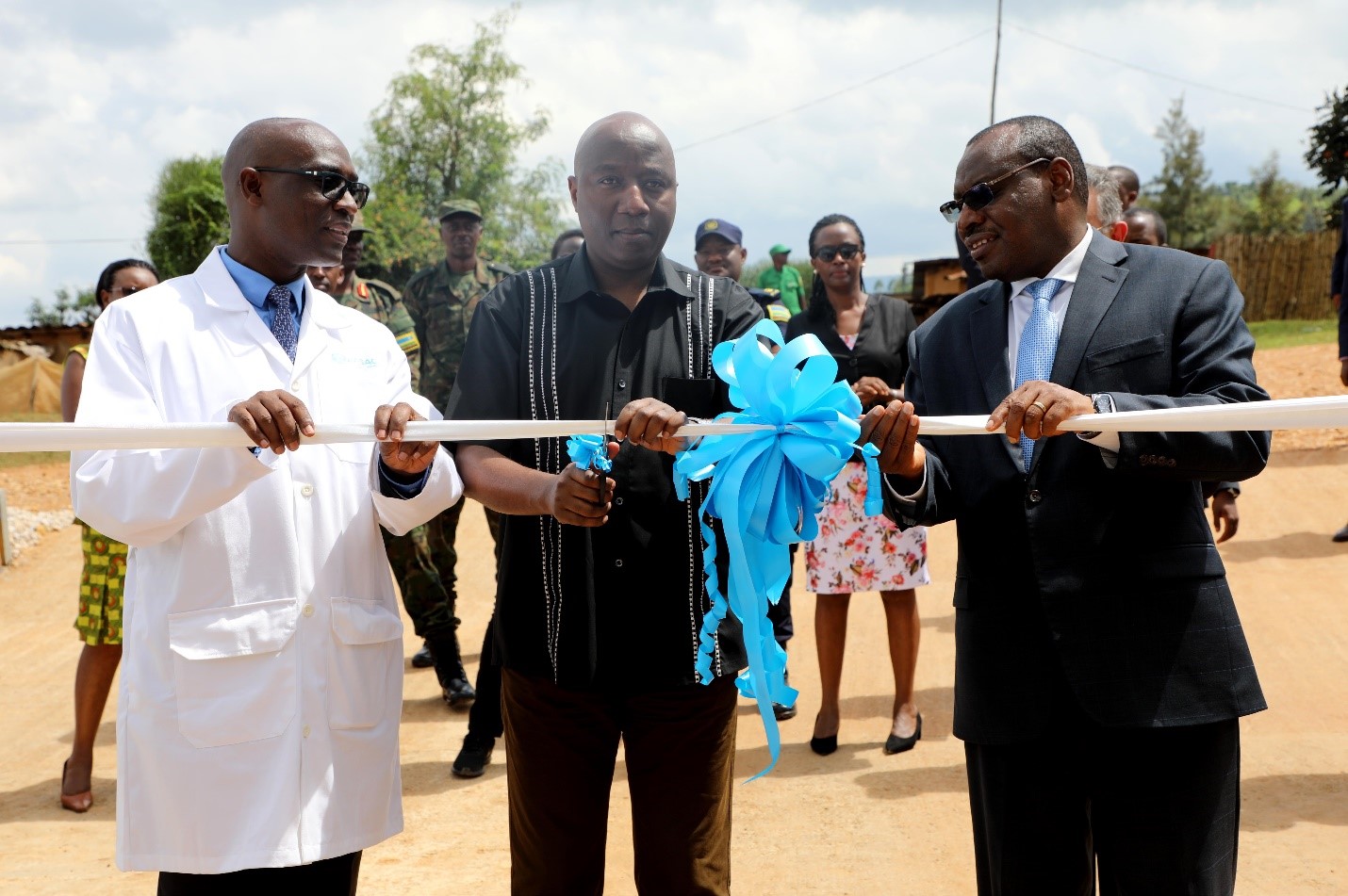Kigali, 06 May, 2019: The Right Honourable Prime Minister, Dr. Ngirente Edouard inaugurated the new Nzove I Water Treatment Plant and the upgrade of Nzove II. After touring Nzove Water Treatment Plant and receiving explanations on the treatment process, the Prime Minister delivered his remarks appreciating the work that has been done.
Prime Minister Edouard Ngirente acknowledged the role of all Government institutions and different development partners in the water sector for having made the new Nzove I and Nzove II a reality. He also thanked Culligan International East Africa and Central Asia (EACA) for the good implementation of the project.
The Premier highlighted that the target of the Government of Rwanda as outlined in the National Strategy for Transformation, 2017-2024 (NST1), is to scale up clean water to all households. In this regard, he reiterated that the Government will continue to increase its investments in construction, extension and rehabilitation of more than one thousand nine hundred kilometers (1,900 km) of water distribution networks in the City of Kigali and other towns.
The Prime Minister further reassured that by 2024, the daily water production capacity will be increased from m3 182,120 to m3 303,120 per day. To achieve this target, he noted that it will require the involvement of all stakeholders in the water sector, most especially all Rwandans and local leaders.
The Prime Minister called upon Water and Sanitation Corporation (WASAC) management and staff to keep on improving their service delivery and maintain well water infrastructures. He also urged local leaders to ensure water tariffs are respected especially on public taps. The Premier finally reaffirmed the general public that the Government of Rwanda will continue to invest in water infrastructure and upgrade water supply services.
The Minister of Infrastructure, Hon. Claver Gatete noted that the New Nzove I Water Treatment Plant has a production capacity of 40,000 cubic meters per day expandable to 65,000 cubic meters while the upgrade of the existing Nzove II Water treatment plant from 25,000 cubic meters to 40,000 cubic meters per day.
Minister Gatete mentioned that the Government is planning to upgrade Nzove ESPINA from 25,000 to 40,000 cubic meters per day and make it cheap to operate once completed.
“This will bring the total water production capacity to 145,000 cubic meters for only Nzove Catchment once the full upgrade is completed”, he said adding that “this production combined with other sources as well as construction of forwarding infrastructure and distribution network, the issue of water shortage will be fully addressed in City of Kigali”.
Minister Gatete further mentioned that the inaugurated treatment plants were financed by the Government of Rwanda at cost USD 40,273,301 including forwarding infrastructure to Mont Kigali and Rebero reservoirs. He also highlighted the will of Government of Rwanda to fully address the issues of water supply shortage. “The Government of Rwanda has secured funds from the African Development Bank (AfDB) amounting to USD 268.5Million and other development partners to implement a number of projects in different parts of the country”, he assured.
The City of Kigali water network is currently getting water from three Water Treatment Plants (WTP) to mention with respective production capacity: Karenge WTP 15,000m3, Kimisagara WTP 25,000 and Nzove WTP 105,000 (when working on full capacity). The three WTPs give a total production capacity of 145,000 per day in Kigali City.
The input of the New Nzove I Water Treatment Plant and constructed forwarding infrastructure have already shown significant improvement in water supply in different zones like, Nyamirambo, Gikondo, Kicukiro, Kagarama, Gatenga and Gahanga.

 ENGL
ENGL KINY
KINY